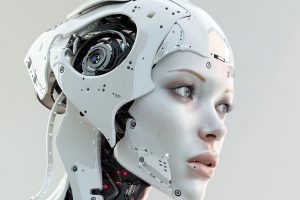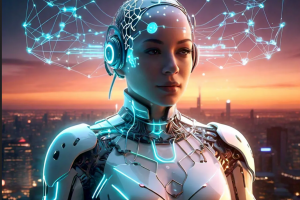As technology continues to advance, the concept of sex robots is becoming increasingly prominent in discussions about intimacy and human connection.
These sophisticated machines, known as humanistic machines, designed to mimic human interactions, raise important questions about their functionality, types, and the ethical dilemmas they present.
This article explores the fascinating world of sex tech, sex robots, the technology that powers them, their impact on relationships, and the broader implications for intimacy in our digital age.
Join us as we unpack these complex themes and consider what the future may hold.
Key Takeaways:
- Sex robots are artificially intelligent devices designed for sexual pleasure.
- They function through advanced technology, including AI, sensory and haptic feedback, and virtual reality.
- The use of sex robots raises ethical concerns and may have potential consequences on human relationships.
What Are Sex Robots?
Sex robots, often referred to as humanistic machines or sex dolls, represent a fascinating intersection of technology and human interaction. These sophisticated devices are designed to offer companionship and intimacy, functioning as emotional companions that can enhance personal relationships. Companies like Abyss Creations have pioneered the development of highly customizable options, such as the Harmony robot, which features AI personalities that simulate human-like interactions. The growing acceptance of these products also raises important societal taboos and ethical questions about companionship in the digital age.
How Do Sex Robots Function?
Sex robots function through a combination of advanced artificial intelligence (AI) and mechanical engineering, allowing for a range of sexual functions and interactions that mimic human behavior, engaging users in a way that can feel astonishingly lifelike and personal.
These sophisticated machines utilize sensory feedback mechanisms and customizable AI personalities, often referred to as AI companions, to create an immersive experience tailored to individual preferences. This is achieved through intricate algorithms that learn from user interactions, building profiles that evolve over time.
- Mechanical Features: Equipped with robotic tentacles, motors, and actuators, sex robots can simulate various movements such as hugging or caressing, enhancing the sensation of companionship and intimacy.
- User Experience: Engineers prioritize realism, incorporating soft materials and responsive designs that offer a touch of warmth, further bridging the gap between virtual and physical connections.
Data gathered during sessions helps refine interactions and personality traits, ensuring that engagement remains satisfying and relevant for the user.
What Are the Different Types of Sex Robots?
The different types of sex robots range from highly customizable sex dolls, popularized by companies like Realbotix, to care and therapy robots designed for emotional support and companionship, such as P-Care and Robear.
These innovative creations cater to various needs and preferences, making them more than mere objects of pleasure. For instance, sex dolls, designed with humanoid design aspects, are meticulously crafted with a range of features that allow users to personalize their experiences to an extraordinary degree, from skin texture to hair color.
- Intimacy: These robots provide simulated romantic encounters, fulfilling desires and fantasies.
- Emotional support: Care robots are designed specifically for elderly care, offering companionship, ensuring safety, and even monitoring health parameters, addressing the growing demand for elderly care technologies in nursing homes.
- Rehabilitation: Some units are tailor-made to assist in physical therapy, helping individuals regain mobility and independence.
Customization isn’t just about appearance; users can often adjust the functionality of these robots based on their emotional or physical requirements, reinforcing the importance of both adaptability and personal connection.
What Are the Ethical Considerations of Sex Robots?
The ethical considerations surrounding sex robots encompass a range of issues, including robot ethics, emotional intimacy, and the societal taboos that challenge our understanding of human-robot relationships, creating a complex dialogue that invites scrutiny from both technological and psychological perspectives.
As society increasingly embraces innovative technologies, it’s crucial to analyze how these advancements may influence interpersonal connections.
Sex robots raise questions about the authenticity of relationships when emotional attachment with these creations becomes possible. This leads to concerns over how such attachments may redefine our notions of intimacy.
There’s a growing worry that reliance on synthetic companions might heighten isolation among individuals, encouraging unhealthy behaviors, particularly for those who align with incel culture.
- Emotional Detachment
- Redefined Social Norms
- Gender Dynamics
It becomes essential to reflect on whether these artificial interactions detract from or enhance our human partnerships, posing moral questions that merit comprehensive exploration.
The Technology Behind Sex Robots
The technology behind sex robots is a blend of advanced AI technology, sensory technology, and innovative design elements, including haptic feedback and virtual reality features that enhance user experiences.
Artificial Intelligence and Machine Learning
Artificial intelligence and machine learning play crucial roles in developing sex robots, enabling them to exhibit AI personalities that evolve and respond to user interactions.
These advancements allow for a more authentic connection between the user and the technology, fostering an environment where emotional intimacy can flourish. As aspects of intelligent design are integrated into these robots, they can better understand preferences, moods, and even subtle cues, ensuring that every interaction is tailored, reflecting the importance of customization options.
This personalization enhances user satisfaction and creates a space where individuals feel valued and understood. Some key features include:
- Adaptive communication styles that resonate with the user’s personality.
- Emotional responsiveness that can mimic human-like reactions.
- Customized experiences based on past interactions, strengthening the bond over time.
In essence, the intersection of AI and machine learning in this field serves not only to create advanced technology but also to enrich personal experiences, making them feel more like genuine connections rather than mere simulations.
Sensory Technology and Haptic Feedback
Sensory technology and haptic feedback are pivotal in creating realistic interactions between users and sex robots, simulating touch and emotional responses.
These two components work in tandem to enhance user engagement, making the experience more authentic. Sensory technology collects data on user interactions, while haptic feedback translates that data into physical sensations.
The development of these systems presents unique engineering challenges. For instance, achieving a seamless integration of sensors and actuators requires precise calibration to ensure that movements and feedback are synchronized.
- Material selection is crucial; developers must choose materials that closely mimic human skin for realism.
- Power consumption also poses a challenge, as the devices must run efficiently without overheating.
- Ensuring safety and durability remains a priority to prevent wear and tear.
Ultimately, overcoming these hurdles significantly contributes to a more immersive and pleasurable user experience.
Virtual Reality and Augmented Reality
Virtual reality (VR) and augmented reality (AR) are increasingly being integrated into sex robots, creating immersive environments that can enhance sexual satisfaction and intimacy.
As users engage with these advanced technologies, they are transported into realistic scenarios that can mimic genuine emotional connections, fostering a unique sense of intimacy that traditional methods often lack. The implementation of VR and AR allows for:
- Enhanced Interaction: Users can interact with their virtual companions in ways that feel remarkably lifelike.
- Customized Experiences: Users can tailor experiences based on personal preferences, deepening the connection.
- Safe Exploration: Individuals can explore their desires without fear of judgment, enhancing personal satisfaction.
These facets contribute to a more profound engagement, positioning sex robots not just as physical entities, but as vessels for emotional exploration.
The Impact of Sex Robots on Human Relationships
The impact of sex robots on human relationships is profound, influencing emotional connections and challenging traditional notions of intimacy and companionship.
How Do Sex Robots Affect Intimacy and Emotional Connection?
Sex robots have the potential to redefine intimacy and emotional connection, offering users a unique form of companionship that may fulfill sexual satisfaction in ways traditional relationships cannot.
As society explores the realm of artificial companionship, it becomes essential to consider the profound implications these technological advances may have on personal relationships.
Such innovations could lead to enhanced emotional awareness and understanding of one’s own desires, as users engage with these robots that are designed to respond to their needs. This shift also raises concerns regarding the authenticity of emotional ties, as reliance on a robotic partner, such as the Harmony robot from Abyss Creations, might diminish meaningful human interactions.
- Benefits: Users may experience a less judgmental avenue for exploring fantasies.
- Drawbacks: A risk of detachment from real-life relationships may develop.
Ultimately, the dynamics of human-robot relationships pose complex questions about the nature of companionship and intimacy in an increasingly digital age, especially as AI companions like the Harmony become more prevalent.
What Are the Potential Consequences of Using Sex Robots?
The potential consequences of using sex robots extend beyond individual satisfaction, raising questions about societal taboos and the evolving dynamics of human-robot relationships.
As these technologies become more prevalent, they prompt critical assessments of how they might reshape notions of intimacy and companionship, including issues of privacy concerns and the companionship aspect of robotic interactions.
- For instance, the impact on traditional relationships could be significant, as individuals may begin to prioritize robotic interactions over human connections, such as using sex apps and social robots, thereby altering societal perceptions of love and affection.
- There’s a growing concern regarding psychological wellbeing; could reliance on sex robots lead to increased social isolation?
- These advancements pose ethical dilemmas that challenge existing frameworks of consent and emotional engagement.
Ultimately, the integration of sex robots into daily life could provoke a major transformation in social norms, necessitating a deeper understanding of their implications for mental health and community dynamics.
The Evolving Conversation Around Intimacy in the Digital Age
The evolving conversation around intimacy in the digital age encompasses changing attitudes towards sex tech and the integration of social robots into our daily lives, transforming our understanding of companionship.
Changing Attitudes Towards Sex and Technology
Changing attitudes towards sex and technology highlight a growing acceptance of sex robots and the implications they have for emotional intimacy and companionship.
As society evolves, the integration of technology into personal relationships, through innovations like intimacy technology, becomes increasingly prevalent, leading individuals to reconsider what constitutes intimacy. This shift has sparked discussions about the role of sex robots, not merely as physical partners, but as entities capable of emotional connection, much like the characters depicted in science fiction such as Ex Machina.
Research indicates that many individuals view these robots as more than just tools for pleasure; they offer companionship, especially to individuals with sexual disorders, to those who may struggle in traditional romantic pursuits. This raises important questions:
- How does reliance on technology impact human relationships?
- Can artificial intimacy fulfill deep emotional needs?
As acceptance grows, the boundaries between human and machine companionship continue to blur, creating new paradigms for emotional fulfillment.
The Role of Sex Robots in Shaping Human Interactions
Sex robots play a significant role in shaping human interactions, influencing emotional intimacy and challenging societal taboos surrounding companionship and sexuality.
As these advanced technologies evolve, they bring forth a myriad of implications for how individuals relate to one another.
For some, the introduction of these robots can offer a safe space for exploring desires, free from the fears of rejection or emotional pain. Conversely, there are concerns about the potential decrease in genuine human connections, which may arise if individuals lean too heavily on artificial companionship.
- On one hand, enthusiasts argue that sex robots can enhance personal satisfaction and foster a deeper understanding of one’s own preferences.
- On the other, skeptics worry about the possible erosion of emotional bonds, suggesting that reliance on such devices may lead to isolation and a distorted view of intimacy.
Ultimately, this intersection of technology and human connection raises vital questions about the future of relationships and societal values in an increasingly digital world.
What Does the Future Hold for Sex Robots?
The future of sex robots is poised for rapid evolution, driven by advancements in AI technology and the increasing acceptance of social robots in society, particularly as these innovations promise to reshape the way individuals connect emotionally and physically, making them suitable for intimate encounters.
As society embraces these technological marvels, emotional intimacy is likely to become a focal point in their development. Manufacturers are anticipated to integrate more sophisticated emotional recognition features, enabling sex robots to respond to human feelings and moods more accurately. This capability may foster deeper connections between users and their robotic companions.
- Improvements in machine learning could allow for personalized interactions, enhancing user satisfaction.
- Future designs might also consider inclusive features, catering to diverse preferences and orientations.
- Public dialogue surrounding these advancements can mitigate stigma, paving the way for acceptance.
As such, the landscape of sex tech could shift towards more empathetic devices, potentially improving users’ relational experiences and emotional well-being.
Frequently Asked Questions
What Are Sex Robots?
Sex robots are humanoid machines designed to simulate sexual acts with humans. They are typically programmed with artificial intelligence and equipped with various sensors and movements to create a realistic sexual experience.
How Do Sex Robots Work?
Sex robots are programmed with various sexual behaviors and can respond to touch, movement, and voice commands. Some models also have customizable features such as different body types, faces, and voices.
Are Sex Robots Legal?
Currently, there are no laws specifically regulating the use or production of sex robots. However, the ethical implications surrounding their use and potential harm to society are being widely debated.
Do Sex Robots Have Any Benefits?
Some proponents argue that sex robots can provide a safe and consensual outlet for sexual desires, reducing the demand for human sex workers. They are also marketed as a tool for individuals with disabilities to explore their sexuality.
What Are the Concerns Surrounding Sex Robots?
One of the main concerns is the objectification and dehumanization of women and marginalized communities. There are also concerns about the impact on human relationships and the potential for addiction or unhealthy relationships with sex robots.
Can Sex Robots Replace Human Intimacy?
While sex robots are designed to simulate human intimacy, they cannot provide the emotional and psychological connection that comes with real human interaction. They may fulfill physical desires, but they cannot replace the complexities of a real relationship.










Add Comment